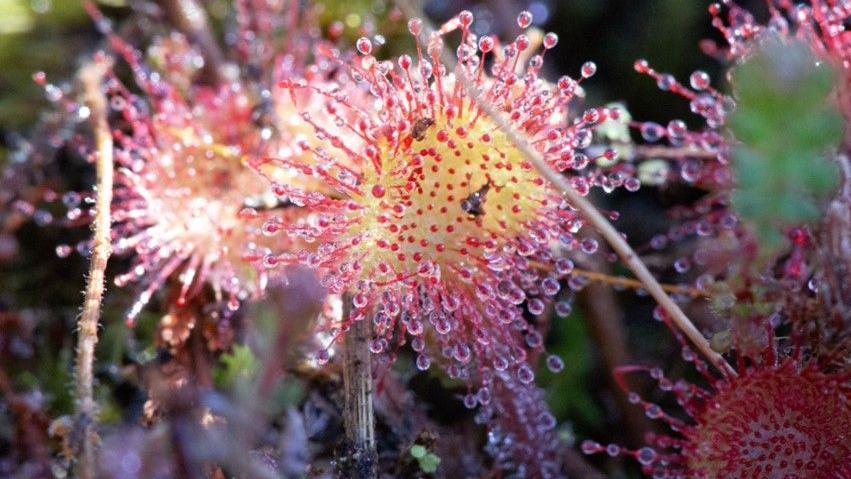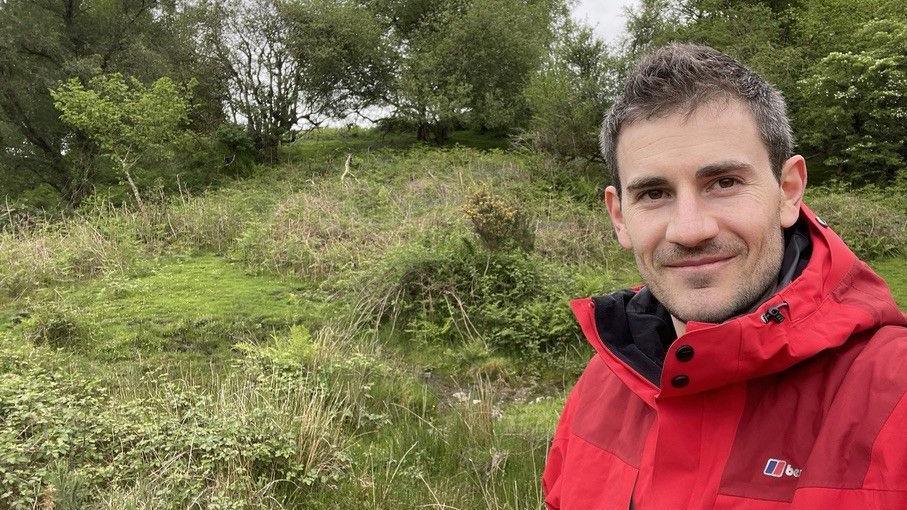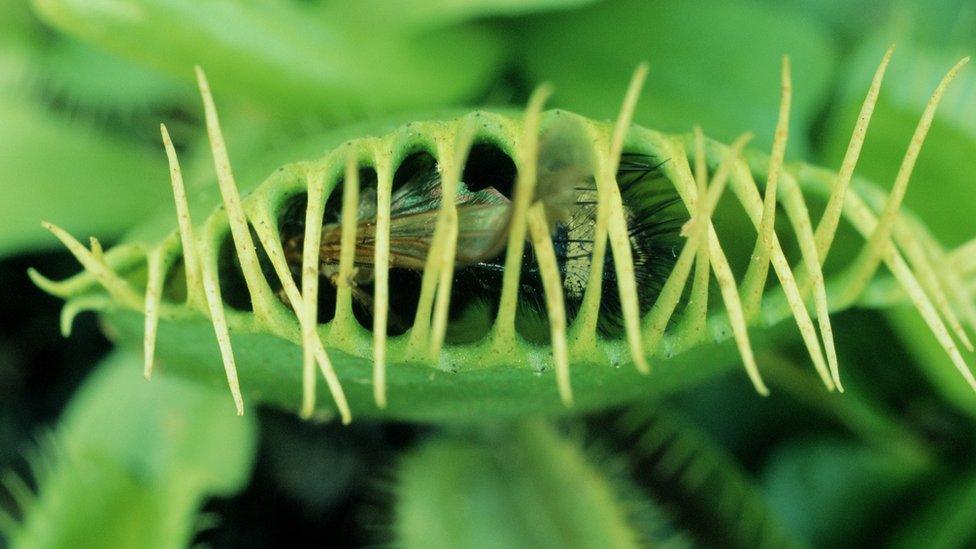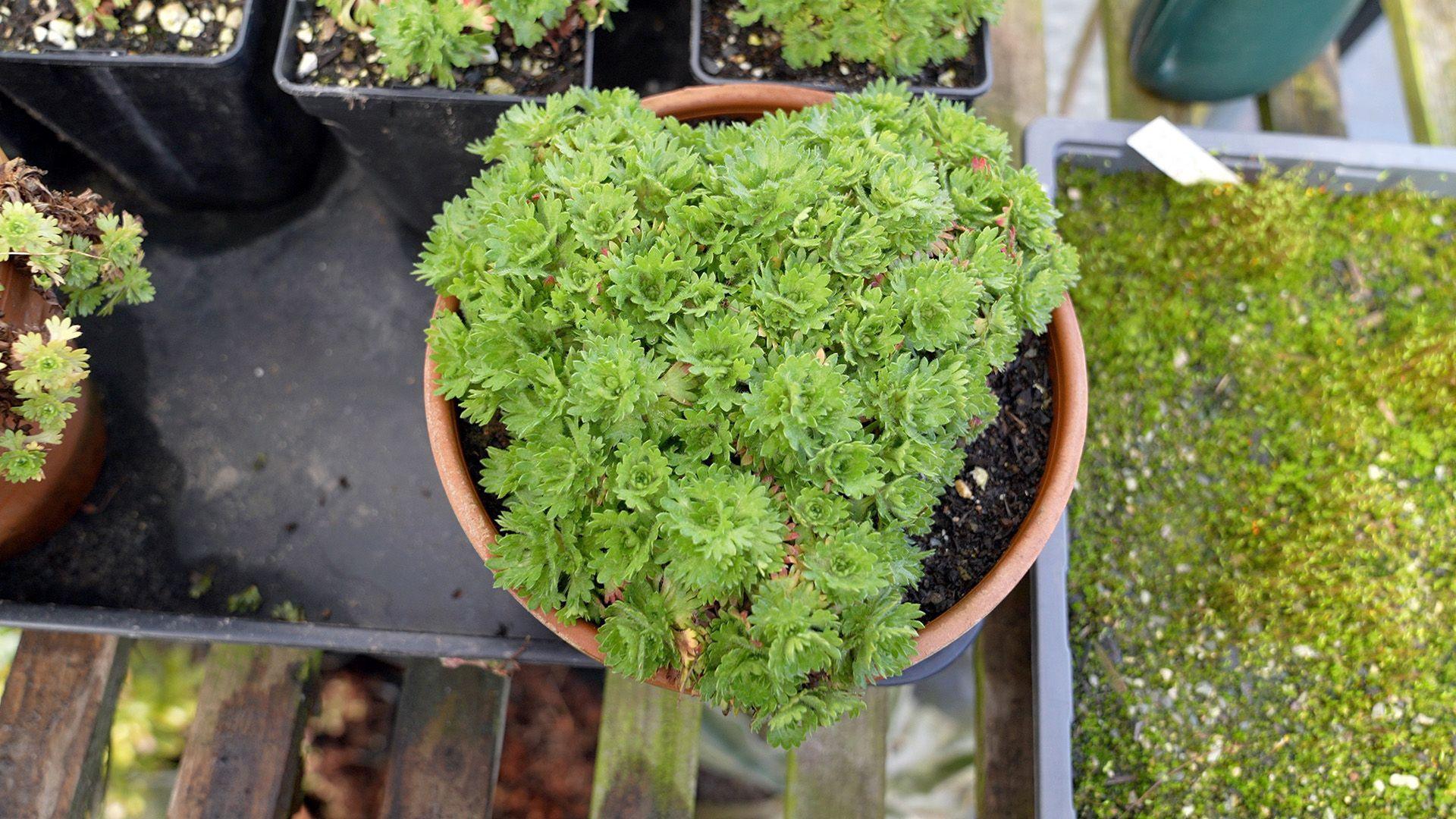Darwin's favourite plant displays tentacle trick

The round-leaved sundew is a cousin of the venus flytrap
- Published
A carnivorous plant that fascinated Charles Darwin is able to increase its number of "tentacles" when nutrients from the ground are scarce, researchers say.
The round-leaved sundew can therefore catch more insects when its environment demands, meaning it may be more resilient than originally thought, said Dr Chris Hatcher from the University of Gloucestershire.
Each pink hair-like tentacle has a sugary droplet on the end and is attached to a leaf, which curls up to capture prey.
Dr Hatcher said his discovery was "important for understanding how species can survive in a changing environment".

Dr Chris Hatcher carried out research on the plant in bogs in Scotland, Finland and Sweden
Dr Hatcher studied the sundew in peatlands in Scotland, Finland and Sweden, along with Dr Jonathan Millett from Loughborough University.
The pair, whose study was published in the journal Functional Ecology, noted the plant's response to differences in sunlight and the availability of nitrogen through rainfall – both are vital for plant life.
The sundew, or Drosera rotundifolia, was found to be more carnivorous in high-sunlight, nutrient-poor bog microhabitats.
In Finland, tentacle density was found to be about 50% higher in some sundews than others.
When rainfall is higher, nitrogen accumulates in the ground and sundews do not need to rely so heavily on nutrients from insects.

Charles Darwin once said he cared more about the plant "than the origin of all species in the world"
"By exploring these adaptive patterns in rainfall and sunlight, we have demonstrated how carnivorous plants can persist in nutrient-poor environments by responding flexibly to local conditions," said Dr Hatcher.
"This adaptability might allow sundews to survive in specific microhabitats by eating more prey where it is most advantageous."
Charles Darwin, author of On the Origin of Species, was a great fan of the sundew, a cousin of the venus flytrap, and is once said to have remarked: "At this present moment, I care more about Drosera than the origin of all the species in the world."
Get in touch
Tell us which stories we should cover in Gloucestershire
Follow BBC Gloucestershire on Facebook, external, X, external, and Instagram, external. Send your story ideas to us on email or via WhatsApp on 0800 313 4630.
- Published22 January 2016

- Published25 May 2024
